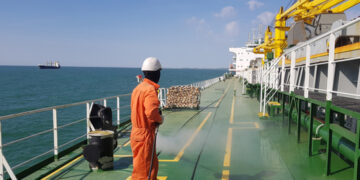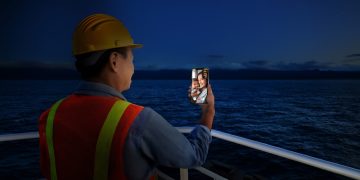ABS joined an ambitious initiative from the Massachusetts Institute of Technology (MIT) on 26 March, to tackle challenges facing global shipping.
The MIT Maritime Consortium unites academia and industry to support the development of cutting-edge technologies that aim to transform the sector, including alternative fuel and new nuclear technologies, data-powered strategies for efficient operations and decision making, autonomy and cybersecurity, as well as on-board manufacturing of spare parts.
ABS, Capital Clean Energy Carriers Corp., and HD Korea Shipbuilding & Offshore Engineering are the Maritime Consortium’s Founding Members. Innovation Members are Foresight-Group, Navios Maritime Partners, L.P., Singapore Maritime Institute, and Dorian LPG.
The consortium will launch multiple research projects designed to tackle challenges from a variety of angles, all united by cutting-edge data analysis and computation techniques.
Collaborators will research new designs and methods that improve efficiency and reduce greenhouse gas emissions, explore the feasibility of alternative fuels, and advance data-driven decision making, manufacturing and materials, hydrodynamic performance, and cybersecurity.
This consortium brings a powerful collection of significant companies that, together, has the potential to be a global shipping shaper in itself. The members are all world-class organizations and real difference makers
… said Christopher J. Wiernicki, ABS Chairman and CEO, adding that the ability to harness their experience and expertise, combined with MIT’s technological reach, would serve as a powerful driver of progress. He explained that, in addition to researching key barriers, bottlenecks, and knowledge gaps in the emissions challenge, the consortium aimed to facilitate the development of novel technology and policy innovations that would be crucial. In the long term, he expressed hope that the consortium would provide the necessary momentum to shift the trajectory toward achieving emissions objectives.
This is a timely collaboration with key stakeholders from the maritime industry with a very bold and interdisciplinary research agenda that will establish new technologies and evidence-based standards,
… commented Themis Sapsis, the William Koch Professor of Marine Technology and the director of MIT’s Center for Ocean Engineering. “

































































